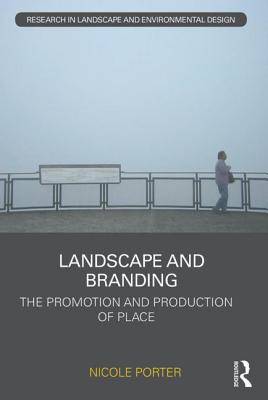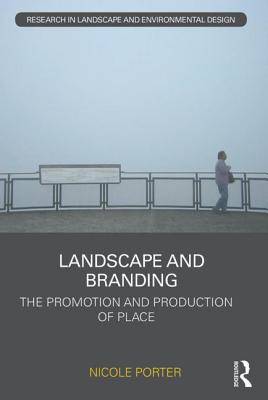
- Afhalen na 1 uur in een winkel met voorraad
- Gratis thuislevering in België vanaf € 30
- Ruim aanbod met 7 miljoen producten
- Afhalen na 1 uur in een winkel met voorraad
- Gratis thuislevering in België vanaf € 30
- Ruim aanbod met 7 miljoen producten
Omschrijving
Landscape and branding explores the way landscape is conceptualised, conceived, represented and designed by professionals in a brand-driven age.
Landscape - incorporating tangible physical space as well as intangible concepts, narratives, images, and experiences of place - is constructed by a number of creative industries. This book tests the hypothesis that place branding, a powerful marketing and management practice, increasingly blurs the distinction between the promotion of landscape and its production in design terms. Place branding involves the strategic and systematic composition of single-minded, experiential and market-friendly place identities which are consistently communicated across various media, including physical space. How does this implicate or transform notions of place, nature, landscape experience, and the qualitative value of landscape itself? How does this affect the role of landscape architecture?
To answer these questions, place branding theory and practice is critically examined alongside an in depth case study of one specific landscape - the Blue Mountains (Australia). Projects undertaken between 1995 and 2015, including a branding strategy for the region, media campaigns, television, cinema, and several landscape architectural works in the public and private domain are comparatively analysed, focusing on the discourse, conventions and values informing their production, and the landscape narratives they convey.
Specificaties
Betrokkenen
- Auteur(s):
- Uitgeverij:
Inhoud
- Aantal bladzijden:
- 240
- Taal:
- Engels
- Reeks:
Eigenschappen
- Productcode (EAN):
- 9781138843547
- Verschijningsdatum:
- 12/10/2015
- Uitvoering:
- Hardcover
- Formaat:
- Genaaid
- Afmetingen:
- 157 mm x 234 mm
- Gewicht:
- 544 g

Alleen bij Standaard Boekhandel
Beoordelingen
We publiceren alleen reviews die voldoen aan de voorwaarden voor reviews. Bekijk onze voorwaarden voor reviews.











